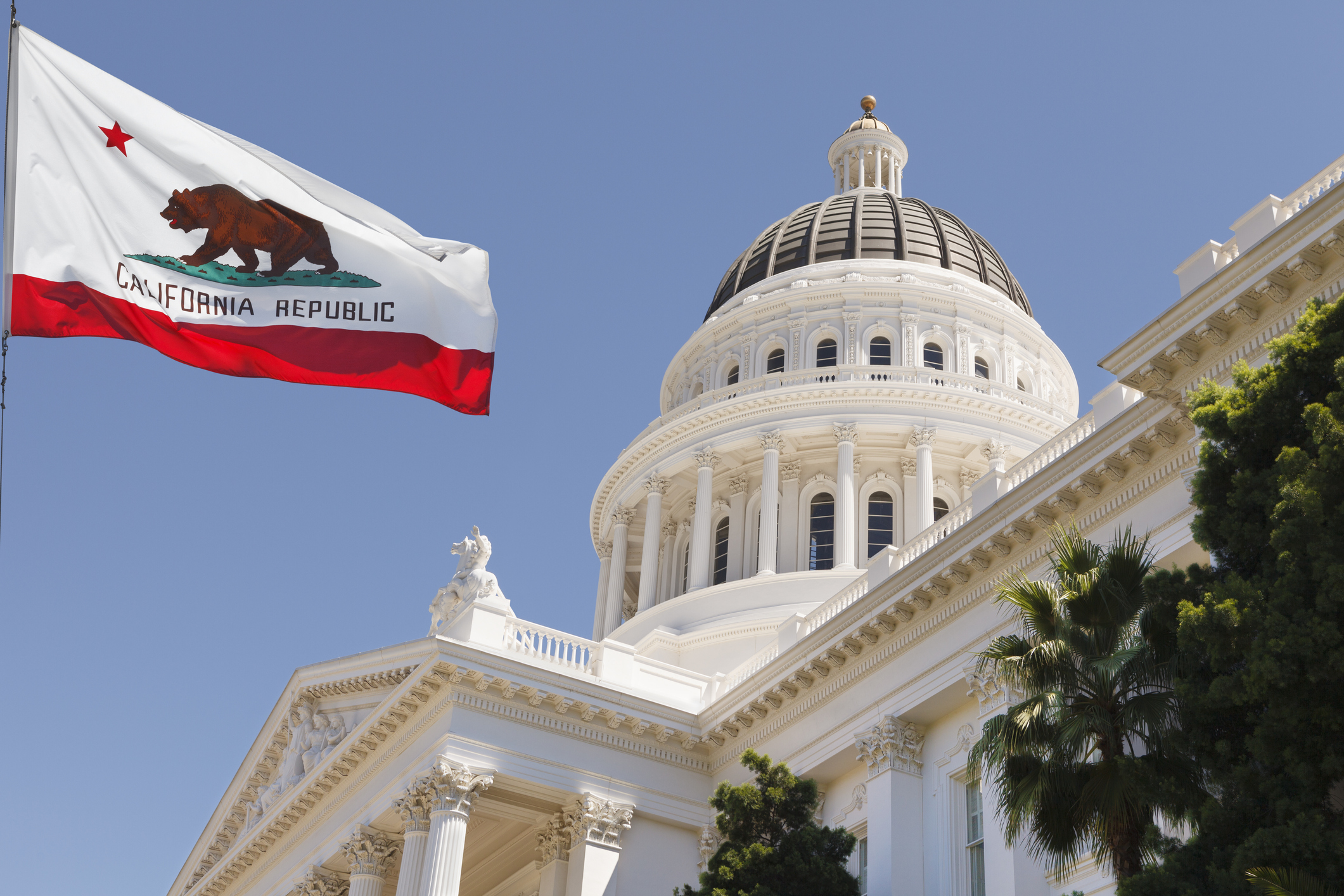Quick Hits
- Governor Newsom had an October 13, 2025, deadline to sign bills passed by the legislature during the recent legislative session that ended on September 13, 2025.
- The governor signed more than a dozen bills impacting employers. The laws take effect January 1, 2026, except where otherwise noted.
- However, the governor also vetoed high-profile employment bills addressing employers’ use of AI, employees’ right to wear face masks, and employers’ obligations to comply with judgments.
California Employment Bills Signed by or Sent to the Governor for Signature
| Bill | Summary | Current Status |
| AB 250 | Window to reactivate sexual assault claims. This law establishes a two-year window, from January 1, 2026, to December 31, 2027, to revive civil claims for damages suffered as a result of sexual assault, even if the statute of limitations has expired. | Signed into law on October 13, 2025 |
| AB 288 | Labor organization and unfair practices. This law empowers the California Public Employment Relations Board (PERB) to oversee and certify union elections and decide unfair labor practice (ULP) charges in the private sector if the federal National Labor Relations Board (NLRB) is unable to or declines to carry out its duties. | Signed into law on September 30, 2025 |
| AB 692 | “Stay or pay” clauses. This law bans employment contracts that require the worker to repay an employer, training provider, or debt collector for a debt (such as training costs) if the worker’s employment ends. The law does not apply to retention bonuses and certain loans if certain conditions are satisfied. | Signed into law on October 13, 2025 |
| AB 858 | Post-emergency reinstatement rights. This law extends the COVID-era reinstatement rights law covering employees laid off from certain industries due to any state- or locally declared emergency to January 1, 2027. The law covers certain airport service and hospitality providers, building service providers, hotels, private clubs, and event centers. | Signed into law on October 3, 2025 |
| AB 1326 | Right to wear masks. If the governor had not vetoed this bill, it would have prohibited employers from preventing employees from wearing face masks unless wearing face masks would be a safety hazard. It would have given employers the right to require employees to remove their face coverings briefly at the worksite for identification purposes. | Vetoed on October 11, 2025 |
| SB 7 | Disclosure of automated decision systems. This bill would have required employers to provide written notice to employees and job applicants when an “automated decision system” (ADS) would be used in making “employment-related decisions,” including hiring decisions. Further, the bill would have prohibited employers from relying “solely” on an ADS to make decisions regarding discipline or employment termination and required employers that “primarily relied” on ADS to make disciplinary or employment termination decisions to provide written notice to the affected employees. In vetoing the bill, Governor Newsom cited its “overly broad restrictions” and the need to assess the impact of the state’s new AI regulations. | Vetoed on October 13, 2025 |
| SB 19 | Workplace protections against threats. This law updates the California Penal Code to add Section 422.3, making credible threats of mass violence against persons “at a daycare, school, university, workplace, house of worship, or medical facility” explicit criminal offenses. The governor’s office indicated the law is intended to provide prosecutors with another tool to address threats of violence, particularly in workplaces. | Signed into law on October 11, 2025 |
| SB 261 | Posting of Labor Commissioner awards. This law mandates that the Labor Commissioner’s Office post any unsatisfied awards against employers on its website. The law imposes a penalty equal to three times the award if the award remains unsatisfied after 180 days. | Signed into law on October 13, 2025 |
| SB 294 | “Workplace Know Your Rights Act.” This law mandates that on or before February 1, 2026, and annually thereafter, employers “provide a stand-alone written notice” to each employee addressing independent contractor misclassification protections, heat illness prevention, workers’ compensation, paid sick days, protections against unfair immigration-related practices, the right to notice of federal immigration inspections, the right to organize a union in the workplace, and constitutional rights when interacting with law enforcement at the workplace. The law requires the Labor Commissioner to “develop a template notice” for employers that complies with the law and post it on its website by January 1, 2026. Further, the law requires employers to notify an employee’s emergency contact if the employee is arrested or detained while at work. | Signed into law on October 12, 2025 |
| SB 355 | Judgment debtor employers. This bill would have required employers to provide documentation to the state Labor Commissioner that a judgment against an employer requiring payment to an employee or to the state is fully satisfied, a certain bond has been posted, or the employer has entered into an agreement for the judgment to be paid in installments and is in compliance with that agreement, within sixty days of a final judgment. | Vetoed on October 13, 2025 |
| SB 464 | Pay data reporting. This law requires employers to store pay equity data, including demographic information related to race, ethnicity, or gender, separately from personnel records. It also creates a civil penalty for employers that fail to submit pay data reports to the California Civil Rights Department. Beginning in May 2027, public employers (currently exempt from the requirements) with one hundred or more employees would be required to submit annual pay data reports to the California Civil Rights Department. | Signed into law on October 13, 2025 |
| SB 513 | Maintaining personnel records. This law requires employers to include these items in education or training records: the name of the employee, the name of the training provider, the duration and date of the training, the core competencies or skills in the training, and the resulting certification or qualification. | Signed into law on October 11, 2025 |
| SB 590 | Expanded paid family leave. This law expands eligibility for benefits under the state’s paid family leave program to include individuals who take time off work to care for seriously ill designated persons. The law defines “designated person” to mean “any care recipient related by blood or whose association with the individual is the equivalent of a family relationship.” | Signed into law on October 13, 2025 |
| SB 642 | Pay transparency requirements. This law sets the state statute of limitations for civil actions brought under Section 1197.5 of the California Labor Code at three years after the last discriminatory pay act occurred and expands the look-back period for relief to ten years. The law clarifies that “pay scale,” for the purposes of job-posting disclosures, means “the salary or hourly wage range that the employer reasonably expects to pay for the position upon hire.” Further, the law defines wages to include stock options and other forms of compensation not previously specified in the law. | Signed into law on October 8, 2025 |
| SB 648 | Tip theft. The legislation authorizes the Labor Commissioner to investigate and issue citations or file civil lawsuits for gratuities taken or withheld in violation of the California Labor Code. | Signed into law on July 30, 2025 |
| SB 809 | Reimbursement of work expenses. The law requires an employer to reimburse an employee for the use, upkeep, and depreciation of a truck, tractor, trailer, or other commercial vehicle the employee owned and used for work. | Signed into law on October 11, 2025 |
Ogletree Deakins’ California offices will continue to monitor developments and will provide updates on the California blog as additional information becomes available.
In addition, the Ogletree Deakins Client Portal tracks developments and provides real-time updates on California employment laws. (Full law summaries and template policies are available for Premium-level subscribers; Snapshots and Updates are available for all registered client-users.) For more information on the Client Portal or a Client Portal subscription, please reach out to clientportal@ogletree.com.
Follow and Subscribe
LinkedIn | Instagram | Webinars | Podcasts



















